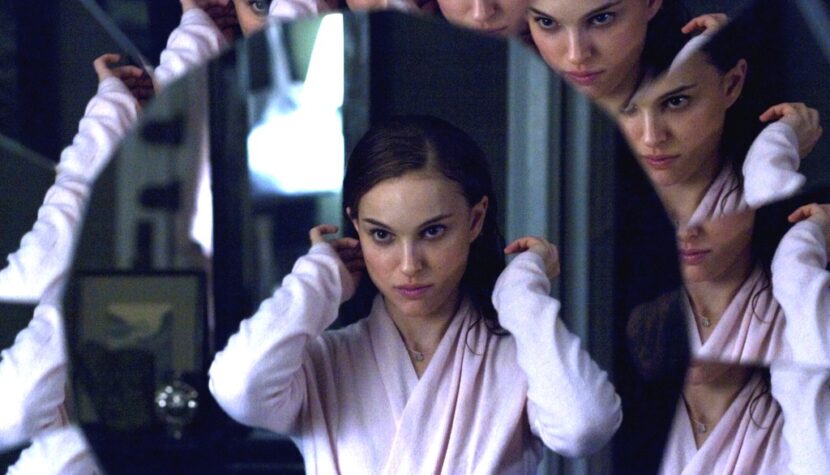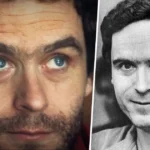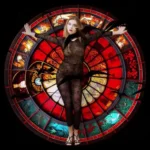BLACK SWAN. Something’s Missing

I watched “Black Swan.” I’ve read and listened to praises in honor of Darren Aronofsky and Natalie Portman. And I can’t comment on it differently than with a classic Gombrowicz question – How can it enchant when it doesn’t enchant?
It must be acknowledged that Aronofsky has a knack for actors. In 2008, we witnessed Mickey Rourke’s triumphant return in “The Wrestler,” and the cast of “Black Swan,” despite the film not living up to its potential, performs really well. Excellent performances (as much as the script allowed) were delivered by Vincent Cassel, Barbara Hershey, and Mila Kunis. The lead actress, Natalie Portman, received a Golden Globe and Oscar for her role as Nina. It must be admitted that these were a well-deserved awards. According to critics, Portman didn’t play Nina; Portman was Nina. Personally, I wouldn’t consider this a compliment. It reminds me of Laurence Olivier’s comment on the efforts of American actors: Can’t they just play it? Exactly. The whole “Black Swan” is nothing more than a promotion of Stanislavski’s method and Lee Strasberg’s school. And its motto: true art consists in losing oneself.

Problem: to be or to play is the main theme of the movie. Nina, a talented ballerina, faces this dilemma. She gets the role of a lifetime in the play “Swan Lake.” Since ballet is her entire life, the role of the Swan Queen is a real dream come true. However, as Wilde said, when the gods want to punish us, they fulfill our dreams. And that’s what happens to Nina. By the decision of the despotic director of the play (Cassel), she has to play both Swans: White and Black, symbolizing good and evil, order and chaos, light and darkness, reason and emotions. The problem is that Nina can’t lose herself in what she does, so her portrayal of the Black Swan is entirely unconvincing. The need to discover and unleash the evil within herself becomes a condition for success but also leads her to the brink of psychosis. The task is not made easier by the unconventional boss, the overprotective mother, or the new friend – an embodiment of everything Nina is not. In the background, we also have complicated relationships with the mother, the drama of a retired prima donna, and various sexual fantasies of the main character.
The somewhat lengthy story of the ballerina becomes a pretext for the director to talk about crossing over to the dark side and the destructive influence of art on our lives. Interestingly, evil is traditionally associated with sexuality and drugs, so both sexual and drug initiation take on great symbolic significance. However, if this is how Darren Aronofsky and the screenwriters imagine evil, the sad truth is that they didn’t go too far, or more bluntly, they got stuck in clichés. The result of their loss is neither a thriller nor a melodrama. “Black Swan” can’t even be called a psychological drama because it’s hard to find more superficial sketches of characters: the exalted Nina, the demonic Lily, the egocentric Thomas, the overprotective mother. Nina’s story is primarily pretentious and banal, only later becoming dark. And also in a very predictable way.
Related:
It must be noted that in “Black Swan,” the director tried to connect with the best. After all, the main axis of the film is the realization of Tchaikovsky’s ballet “Swan Lake.” Leaving the musical setting to Piotr Tchaikovsky was a good idea. The Russian composer is tried and true, as brilliant as ever. By the way, I wonder if the director knows his dark biography. It’s much more interesting than Nina’s. In the film, you can also find inspiration from other dark works – Polanski’s “Repulsion,” Saura’s “Carmen,” or Fincher’s “Fight Club,” not to mention “The Phantom of the Opera.” It’s just a shame that the mix of all these threads falls flat and overshadows what is most interesting in the film.

Because, paradoxically, the strongest accent of “Black Swan” is not the study of advancing madness but the portrayal of reality. Especially the very realistic scenes from the daily lives of ballerinas. Scenes full of tedious, exhausting training, constant rivalry, envy, and humiliation. Sometimes strikingly reminiscent of Edgar Degas’ paintings of ballerinas – tired, exhausted women, stripped of all magic and reduced to pure physicality. There’s nothing magical about them. And in creating such a character, a skinny, graceless ugly duckling that transforms into a swan only during the performance, I would see the strength of Natalie Portman’s acting.
What the actress succeeded in, the director did not. I don’t know what was lacking – perfect craftsmanship or losing oneself. I doubt the former, and I don’t believe in the latter. Apparently, there is something else because mastering the first two elements, contrary to what Aronofsky himself suggests, is not a guarantee of success. This is best seen in the example of his own film.





